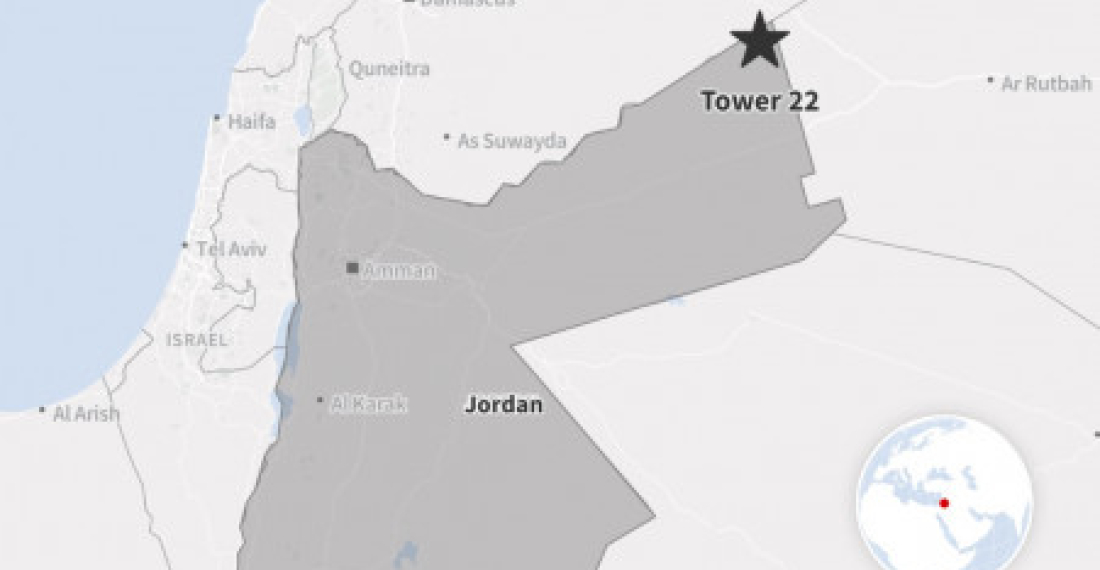Three US soldiers were killed on Sunday after a drone attack on a US military facility on the Jordanian side of the Iraq-Syria-Jordan border. US officials say at least 34 military personnel were also being evaluated for possible traumatic brain injury, and that some of the injured soldiers were medically evacuated from the base for further treatment.
They also say the drone struck the living quarters, which, if confirmed, could explain the high number of casualties.
US Central Command and President Biden said the attack was on a base in northeastern Jordan, near the Syrian border. It was later named by US officials as Tower 22.
US officials are pointing a finger of blame at Iranian backed groups in Syria and Iran. US president Joe Biden said the US "will hold all those responsible to account at a time and in a manner of our choosing". Iran denied US and British accusations that it supported militant groups blamed for the strike.
"These claims are made with specific political goals to reverse the realities of the region," foreign ministry spokesman Nasser Kanaani said, according to Tehran's official IRNA news agency.
Iranian backed groups across the Middle East have intensified their activities in recent weeks as a result of the ongoing conflict in Gaza.






